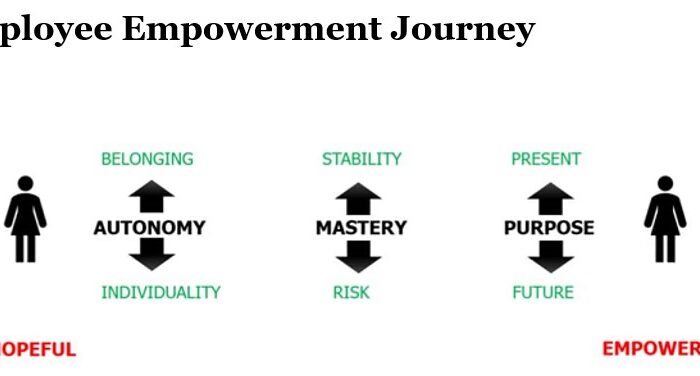Are you getting the help that you need? In Blackboard Fridays Episode 16, Jacob talks about Leadership. Need this implemented into your business? Talk to the international business advisor who can do exactly that – Contact Jacob, Learn More, or Subscribe for Updates.
Who is Jacob Aldridge, Business Coach?
“The smart and quirky advisor who gets sh!t done in business.”
Since April 2006, I’ve been an international business advisor providing bespoke solutions for privately-owned businesses with 12-96 employees.
At this stage you have proven your business model, but you’re struggling to turn aspirations into day-to-day reality. You are still responsible for all 28 areas of your business, but you don’t have the time or budget to hire 28 different experts.
You need 1 person you can trust who can show you how everything in your business is connected, and which areas to prioritise first.
That’s me.
Learn more here. Or Let’s chat.
Transcript
Hi! I’m Jacob Aldridge.
If you’ve ever sought strategic support for your business, you probably came across all of these terms and you might be wondering, “What is the difference between a:
- business coach,
- consultant,
- trainer,
- facilitator, or a
- mentor?”
And more importantly, based on those differences, “Which is right for me and my businesses?”
So in this week’s Blackboard Fridays episode, I thought I would take my years of experience training and mentoring hundreds of business advisors (across all 5 disciplines) and share with you what the key differences are, and ultimately why that may not matter.
On the blackboard I’ve drawn the 5 advisory disciplines in the following order, and with different colours.
- Facilitator
- Coach
- Consultant
- Trainer
- Mentor
Let’s start at the top.
What is a Facilitator?
The role of the Facilitator is to ask key questions without having any ownership of the outcome you’re going to create. The facilitator generally works in a one-to-many space.
As a business owner, for example, you might have someone come in and facilitate a workshop. The facilitator doesn’t create and present the content of the workshop – while they may help draft the agenda and seek an understanding of your desired outcomes, their role is to just ask and lead the conversation.
What is a Coach?
A business coach, in the pure coaching methodology, is somebody who asks questions and does not give information.
As you may have guessed, the two disciplines drawn in green (Facilitator and Coach) are the “ASK” disciplines. (The blue is for the “TELL”). So, a pure business coach will not tell you what to do or what you need, they will only ask to draw information into your consciousness or to help you make connections from your own experience and wisdom.
Coaching comes from the premise that all the answers sit within you, the business owner or leader, and so all a good coach must do is ask the right questions. It’s because of that modality, combined with my experience coaching several hundred business owners over the years, that I know that business coaching, when done properly is a complete waste of time.
Why is pure business coaching a waste of time and money? Because business owners don’t know what they don’t know. To pick an extreme example, having a coach ask you questions about your best tax strategy is a complete waste of time and effort.
What is a Consultant?
A business consultant is somebody who comes in and tells you that they are the expert.
The easiest way to think about the value of a consultant is something like a tax accountant or an IT consultant. In those instances, as a small or medium size business owner, you really do want them to come in and bring their expertise. They’re not going to ask you for your opinion particularly because they know that they’re consulting, they’re giving you the answers.
Frustration can ensue when a business owner engages a consultant in a field where they feel they also have insight – marketing is a classic example. By misunderstanding these 5 disciplines, you engage a marketing consultant (an expert to tell you what to do) and then get frustrated they don’t ask you a heap of questions like a coach!
What is a Trainer?
A trainer will also bring a process and the answers to a solution to the to the questions you might be asking. And again, like a facilitator, a trainer is generally a one-too-many-space.
So, they will come in with their material and run through a process from that tell space – giving rather than asking you to try to draw out of you.
What is a Mentor?
The last of the five advisory disciplines is a Mentor.
A mentor, by definition, is somebody who has walked this path before and is sharing, telling you their experience based on what they did.
One of the challenges of a mentor is even if they are from the same industry or similar business size to you, their experience may be out of date. With a mentor, it’s critical to find somebody who understand how your business in your industry is going today, rather than just giving you war stories from history.
5 Advisory Disciplines in Summary
I’ll run through those very briefly again.
- A facilitator will ask questions of a group to take them through a process with no ownership in the outcome.
- A coach will ask questions from you without giving any answers.
- A consultant will give you all the answers without asking any questions from you.
- A trainer will tell walk through a process in a one-to-many environment, and
- A mentor will share tell their experience.
Which of those is right for you and your business?
Well, the reality is, in the modern world, all five of these advisory disciplines are a marketing term more than advisory disciplines.
Most business coaches know that pure coaching is a waste of time, and so they intersperse their coaching work with a degree of consulting where they will bring some of the solutions.
If an advisor has experience in your industry, they might sit in a mentor space – but also use coaching or training approaches to help you achieve your outcome. You’ll generally be able to find people with this experience are great at running a training presentation and even facilitating a session where it’s just drawing the information out of the group and getting them a line and on the one page.
In other words, the best business advisors are ones to understand the difference between these disciplines but are also trained and able to deliver in various approaches. This ensures that at any point when they’re working with you and your business, that their experience and advisory methodology is going to give you the best return on investment.
Next Steps
Want to learn more about how this can apply to your business? It costs nothing to chat:
- Email me jacob@jacobaldridge.com (I read them all)
- Call, Text, or WhatsApp me +61 427 151 181
- Or just Subscribe https://jacobaldridge.com/about/subscribe-to-jacob-aldridge-com/ to stay in touch





[…] Episode 16, Are you getting the help that you need? – https://jacobaldridge.com/business/are-you-getting-the-help-that-you-need/ […]